On Friday, February 22, more than 300,000 people descended upon the Colombia-Venezuela border to attend a massive benefit concert in Cúcuta, Colombia, that was organized by British billionaire Richard Branson. The purpose of the concert, dubbed “Venezuela Live Aid,” was to raise awareness about the dire humanitarian crisis in Venezuela and to pressure president Nicolás Maduro to allow humanitarian aid being stored in Cúcuta past the border, where his regime has blocked it from entering from the country. The pro-opposition concert featured more than 30 artists and included performances from major Spanish-language acts like Alejandro Sanz, Carlos Vives, Luis Fonsi, Juanes, Maluma, and Danny Ocean. Although the Maduro regime countered with a concert of its own on the Venezuelan side of the border, the pro-regime event was sparsely attended and featured primarily lesser-known, local bands.
Branson’s mega-concert was strategically scheduled for the day prior to when Venezuelan opposition leader Juan Guaidó—who has been recognized as the country's president by the US and other nations—vowed to transport US humanitarian aid stalled at the border into Venezuela. In a statement earlier in the week, Guaidó described how hundreds of thousands of Venezuelan volunteers would help push the aid across the border as part of a large organized effort, which he called a “humanitarian avalanche.”
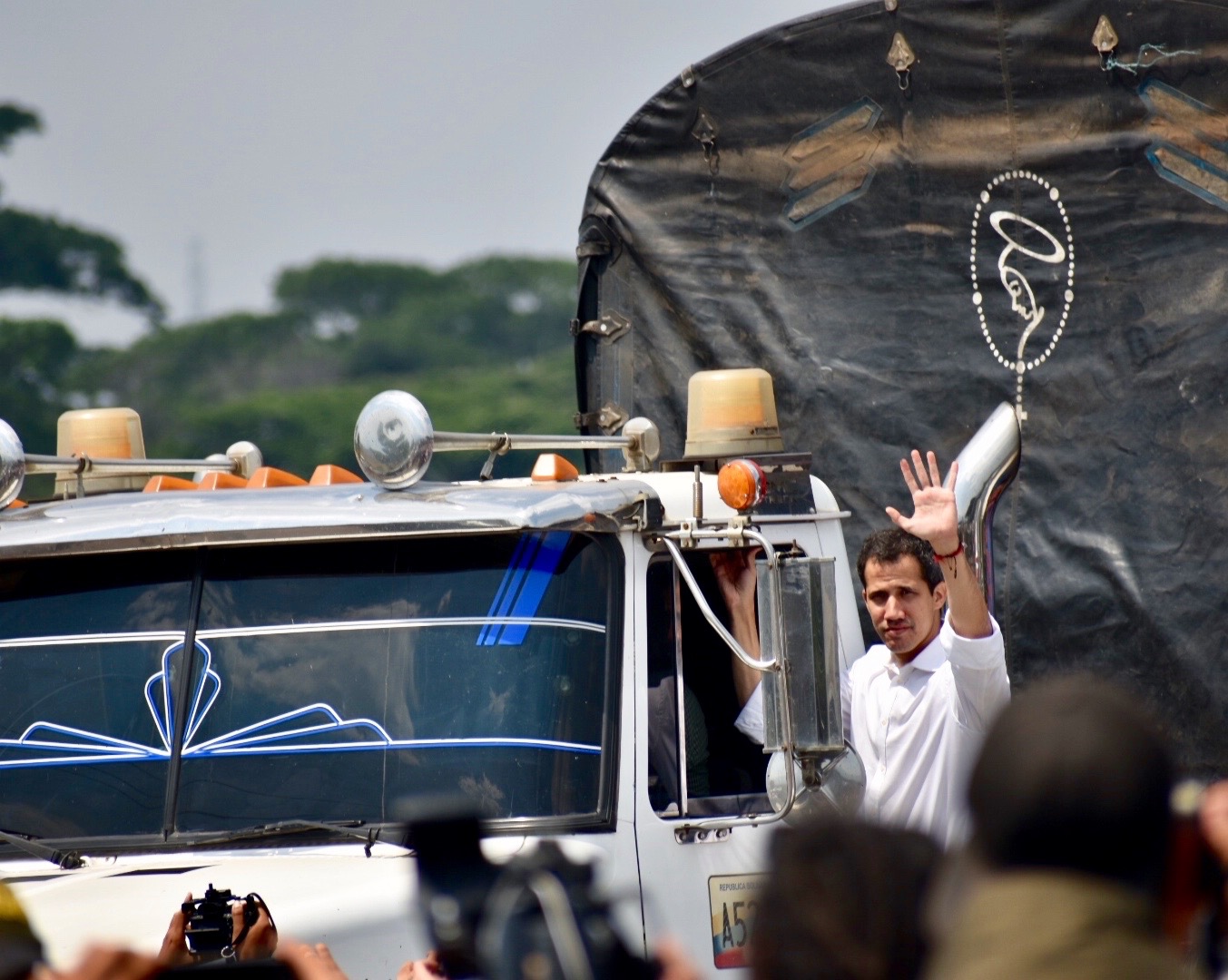
Venezuela has been plagued for years by a severe socioeconomic crisis marked by soaring hyperinflation and critical shortages of food and medicine, which has prompted more than 3 million people to flee the country. Despite this, Maduro has frequently denied that any humanitarian crisis exists in Venezuela, and has lashed out against the opposition’s attempt to usher in humanitarian aid, calling it an “imperialist plot” orchestrated by the US to bring about regime change.
VICE spent the weekend with the tens of thousands of Venezuelans who crossed the border to Cúcuta to participate in this historic weekend. While some came merely to enjoy the music on Friday, the majority arrived with an unwavering determination to help push the aid across the border on Saturday, risking their lives in what turned out to be a violent clash that left at least four people dead and another 300 wounded. We had a simple question for them: What motivated you to come?
Friday: Venezuela Live Aid Concert
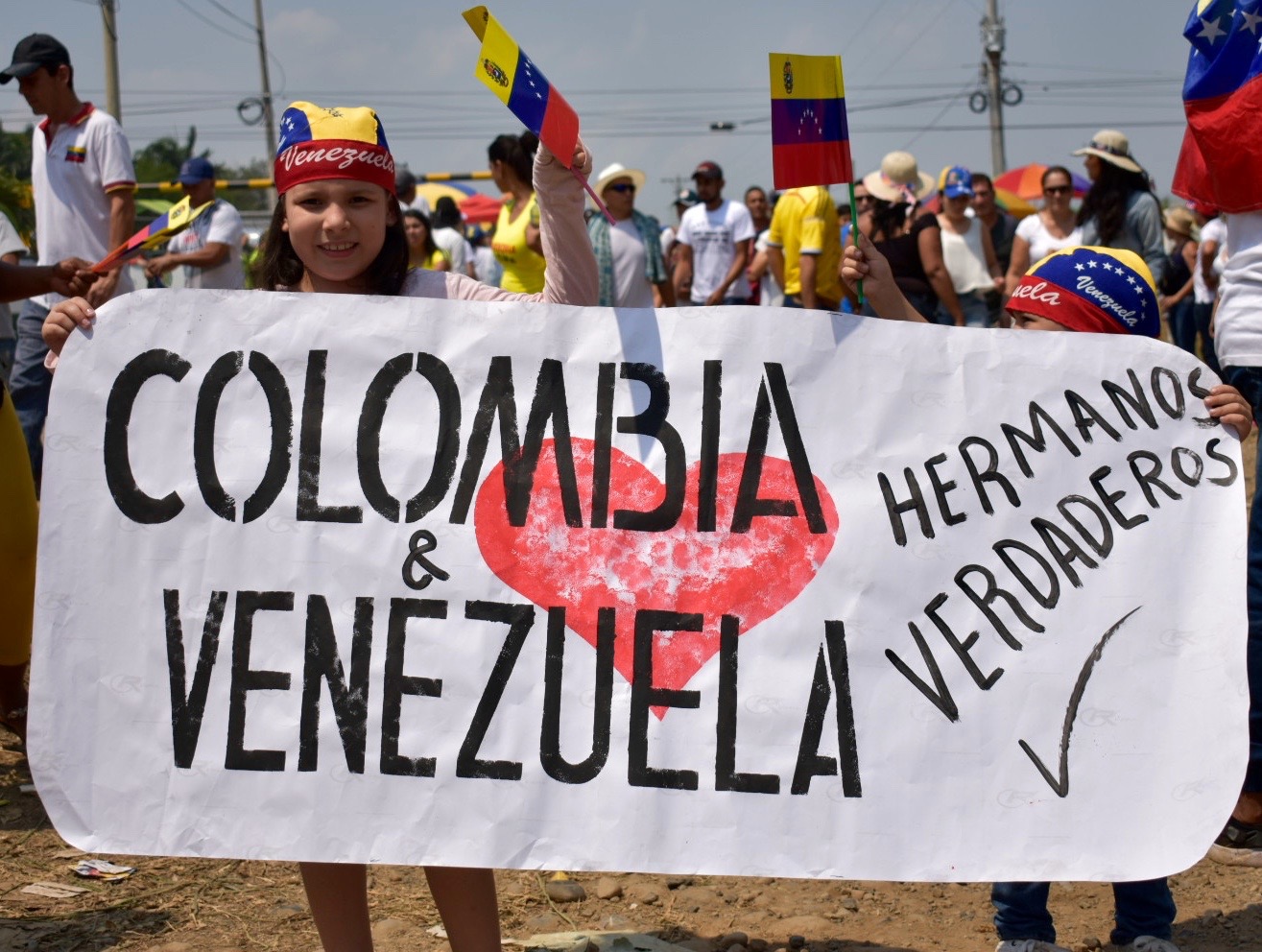
Anderson Rico (42), Merchant
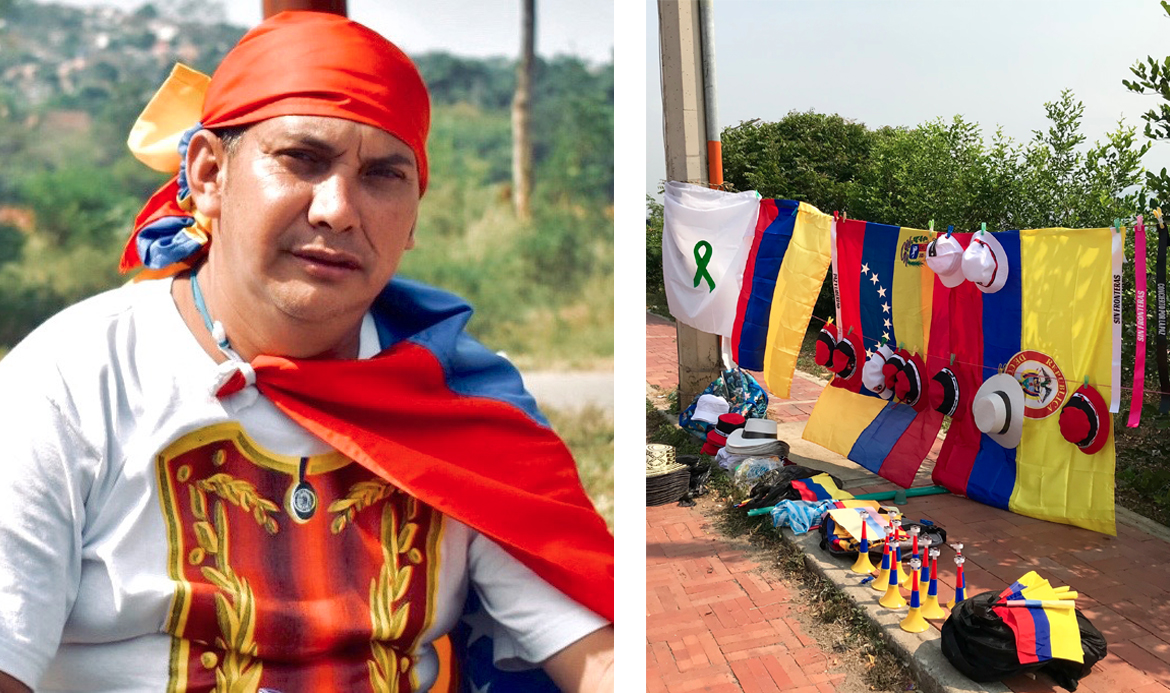
Anderson sits on the side of the road leading towards the concert, selling hats and bandanas alongside hundreds of other merchants. Next to him, a ten-year-old boy named Brian is dressed in the same manner, playing with a blow horn. I assume they’re family, but Anderson tells me that they’re friends who just met here today, adding, “everyone is like family here.” As I talk with Anderson, Brian looks over my shoulder and offers his thoughts from time to time.
VICE: What motivated you to travel to Cúcuta for today’s event?
Anderson Rico: I came to support the humanitarian aid that everyone in Venezuela needs. The country needs medicine and food. We need a change in our country, which is currently suffering from an extreme poverty that doesn’t make any sense, because we are a rich country. Nowadays everyone in Venezuela needs to scavenge for survival. Write that word down: scavenge.
And what do you think about the concert? Is it an effective way to bring about change?
The concert is a distraction for us. [It’s meant] to pull us away from all of the pain back home, and to bring us all together here to motivate us to fight for change. But we’ll see what happens tomorrow when the real fight happens.
What’s your opinion on Guaidó and Maduro?
In Guaidó, we have hope. He’s like a key to open a door to the future, a door towards another path—the correct path.
Brian: To lead the change that is needed in Venezuela.
Anderson Rico: Maduro, on the other hand, is a bastard. He only thinks about himself and never about the people who are suffering.
Brian: I agree. My family agrees, my friends agree—everyone agrees.
Lisbet (21), Banana Seller
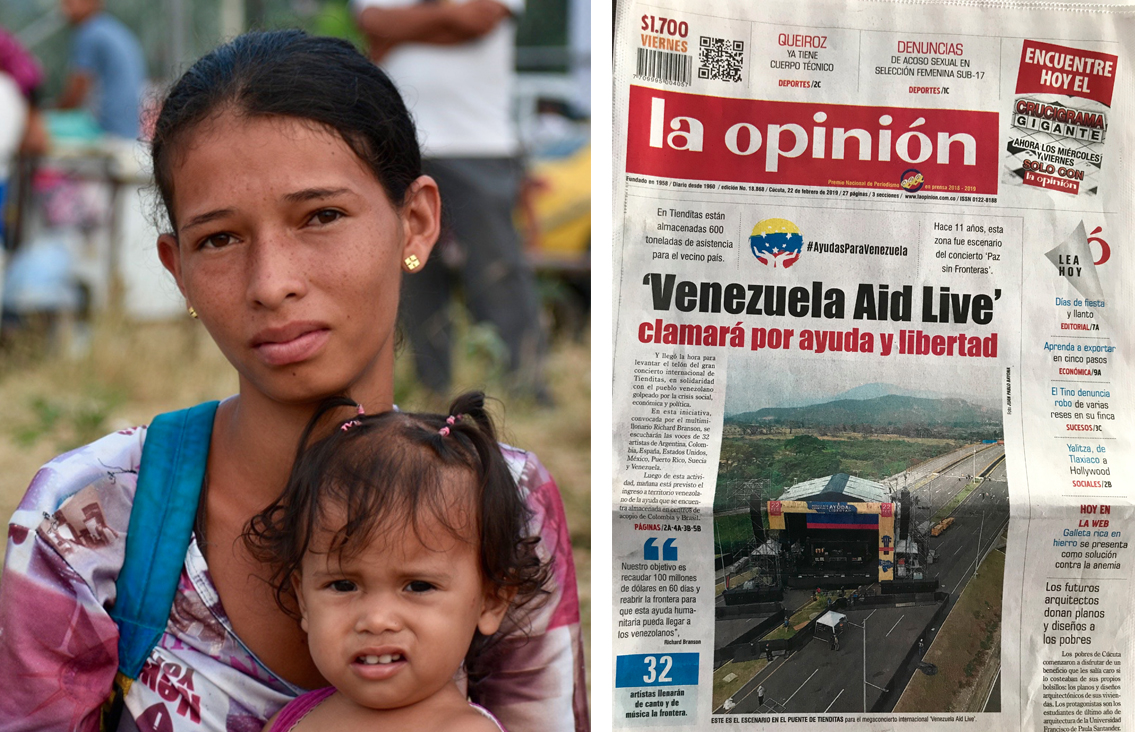
Lisbet holds her one-year-old daughter, Marsole, towards the back of the venue as she listens to Reymar Perdomo, a Venezuelan migrant-turned-viral star, open the concert with the song, “Me Fui.” “That song means so much to the Venezuelan people,” Lisbet tells me a few minutes later. “It talks about the pain of leaving Venezuela. So many people have thought about leaving.”
VICE: Have you thought about leaving Venezuela too?
Lisbet: Of course. There’s nothing in Venezuela. I can make maybe 10,000 Colombian pesos (about $3) in one day selling bananas, which is only enough to buy two pounds of rice and two pounds of flour. The situation is very critical back home: People are sick and dying and many are suffering from malnutrition, especially the kids. I stay now because of my daughter, but we really need the humanitarian aid.
What does being here today mean to you personally?
This weekend is all about the liberation of Venezuela. It shows how many of us are united in trying to get rid of Maduro. His regime has given our country so much pain. They’ve robbed us of everything. So we’re here today to stand together and say to Maduro, it’s time for you to go. And tomorrow we’ll all be together to bring the aid into our country.
Danny Ocean (26), Singer
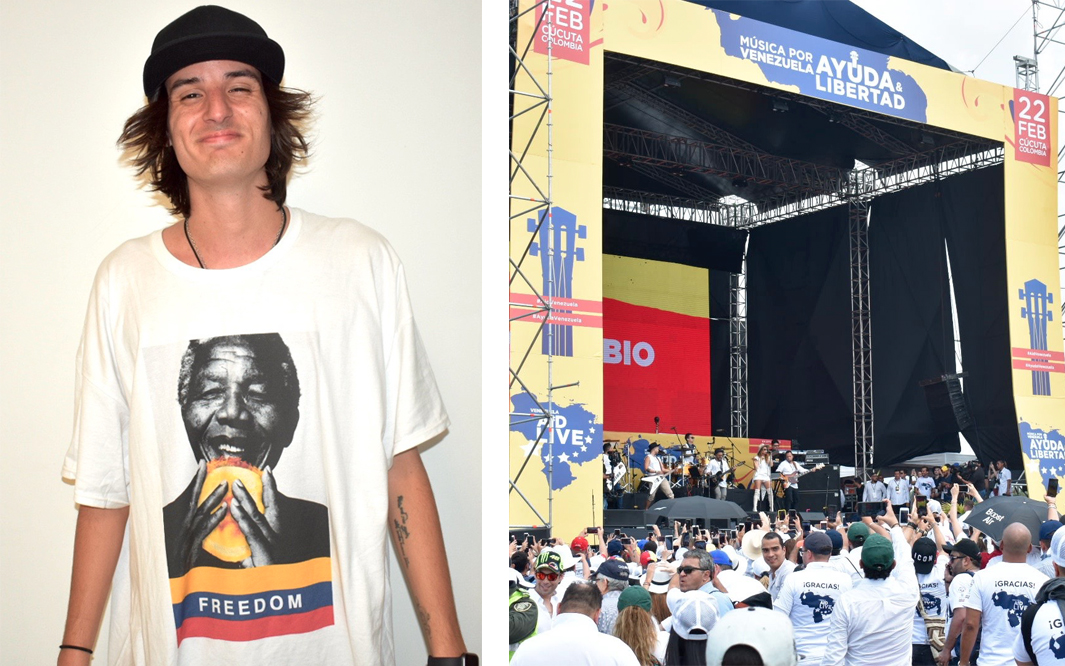
Danny has a wide grin on his face when I walk into the room. He’s just finished performing his hit song “Me Rehúso” in front of more than 300,000 people. We introduce ourselves and he eagerly asks what I think of his T-shirt, which depicts Nelson Mandela eating an arepa. Ocean is from Caracas, Venezuela, but left the country in 2015 and hasn’t been back since.
VICE: Being from Venezuela, what does it mean to you to have the opportunity to play this concert?
Danny Ocean: You know, as a musician, we make music for occasions like this. It’s about supporting where you came from and supporting the people who are struggling in your home country. There’s a lot of suffering back home, and I’m just happy to be able to support this cause of bringing humanitarian aid to the people of Venezuela.
What do you hope to achieve this weekend by participating in today’s concert?
The most important thing that Venezuelans can do is to see that we can all come together as one people to change this situation. This concert is about raising awareness and bringing people together; it has nothing to do with politics. I just wanted to come out here and bring happiness and joy to this occasion, and get people to realize that we can all work together to help our country.
Saturday morning: Tienditas International Bridge
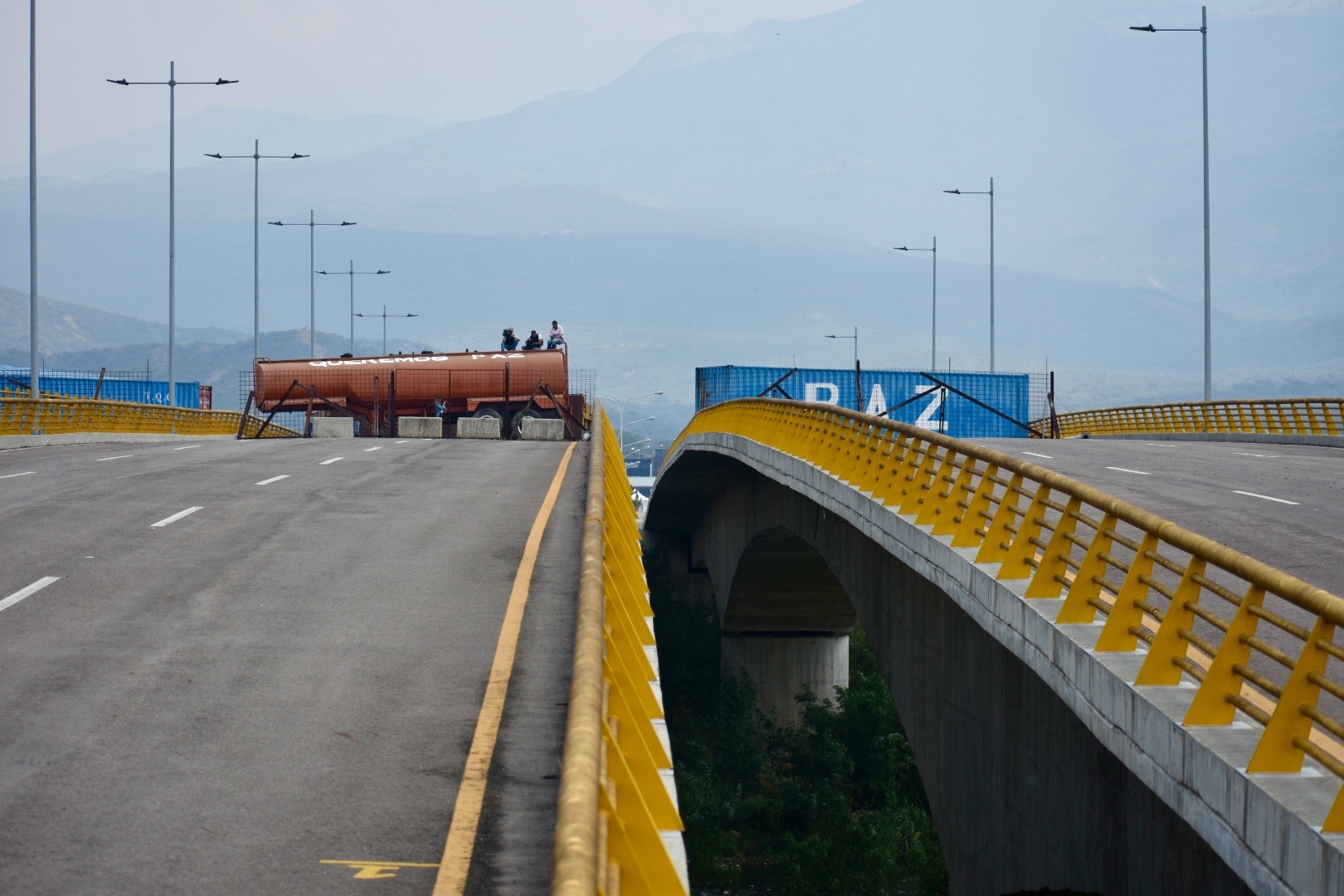
Jose (45), Actor
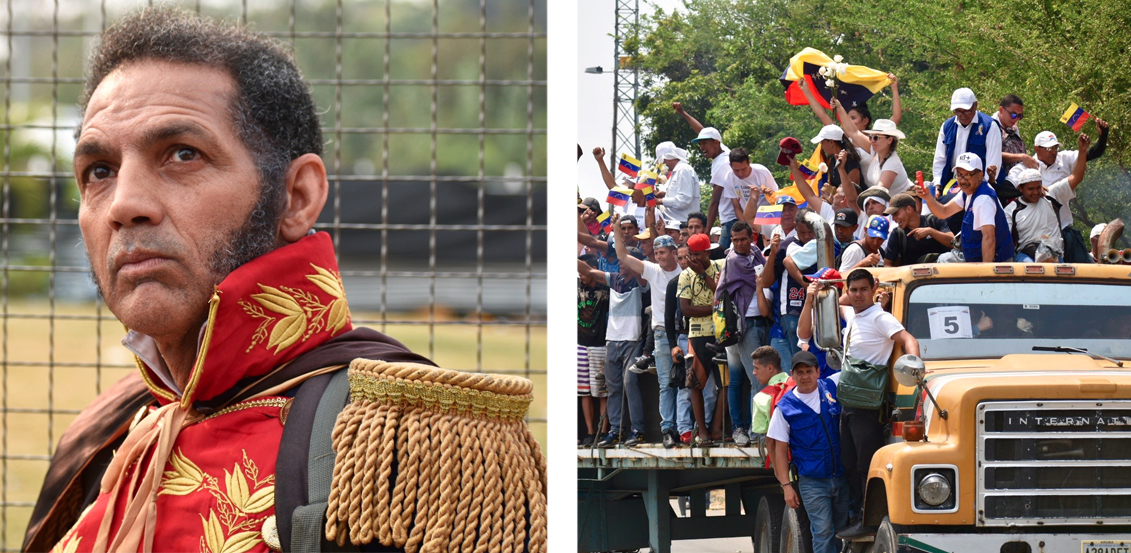
Jose stands among a large crowd of Venezuelans gathered at the Tienditas International Bridge hours before the day’s action is set to begin. Dressed as Simón Bolívar, he attracts cheers from his comrades. The crowd is energized this morning, and endlessly chants “freedom” and “liberate Venezuela.”
VICE: What motivated you to come today to assist with the humanitarian aid?
Jose: I love my country and I want the best for it. We need to end the slavery that’s killing us.
Tell me about your costume. What’s the significance of dressing as Simón Bolívar today?
Bolívar symbolizes the great dream of Gran Colombia, the liberation and unification of Colombia, Panama, Bolivia, Ecuador, and Venezuela. The government we have now has destroyed the image of Bolívar by doing the opposite of his legacy. Bolívar was a liberator; today we have Maduro, a dictator. Instead of uniting us, he’s separating and destroying the nation.
What is your hope for the future of Venezuela?
My hope is that from today onward, we’ll continue marching forward and that Venezuela will soon be free. It could be today, tomorrow, or sometime soon—the deck has already been dealt and the table is set for freedom.
Elisabeth (64)
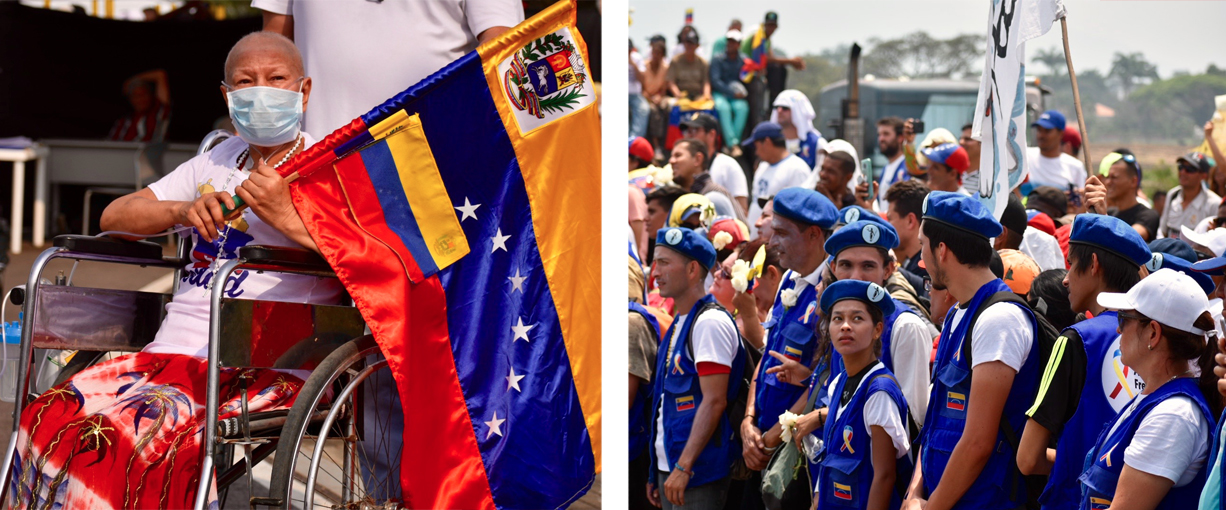
Elisabeth is in a wheelchair among a crowd of Venezuelans who eagerly await instructions as to how they will get the humanitarian aid across the border. The wait drags on for hours, but speakers keep the crowd motivated and engaged. At one point, during a speech about freedom being at the doorstep, Elisabeth begins to cry.
VICE: What do you think is going to happen today?
Elisabeth: I know that they’re going to open the border so that the aid passes through. I don’t know how, but I feel it in my heart. I’m a cancer patient and a migrant from Venezuela. I moved because I couldn’t get medical care in Venezuela; they negate your right to healthcare there. So I had to come here for treatment. When I first went to the doctor in Venezuela, I had stage one cancer; by the time I got to Colombia, I was already stage four because I had no medical attention back home. They allowed this to happen—there was nobody to care for me in Venezuela. Now I just want to see that aid make it across the border to help other people before it’s too late.
Saturday evening: Simon Bolívar International Bridge
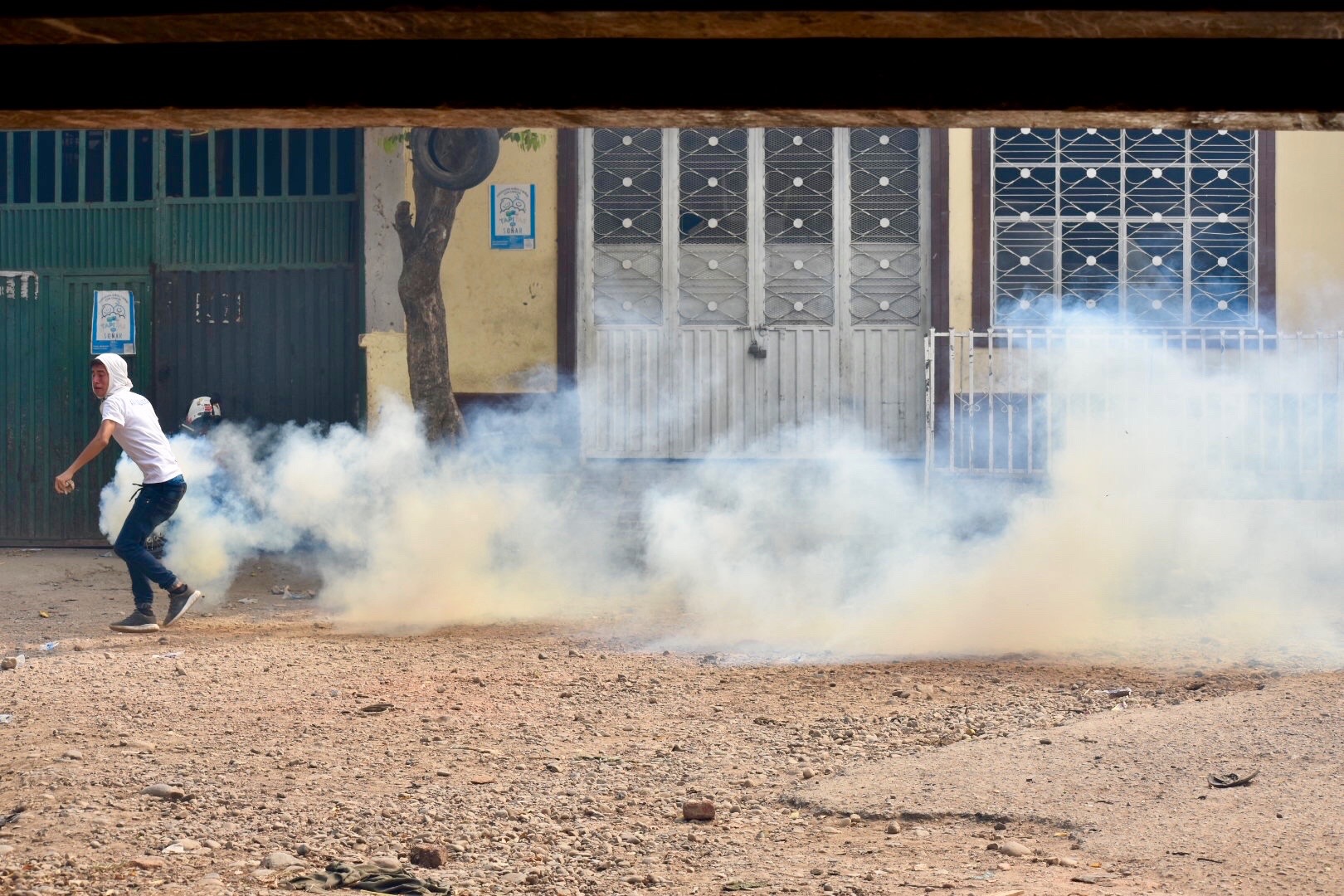
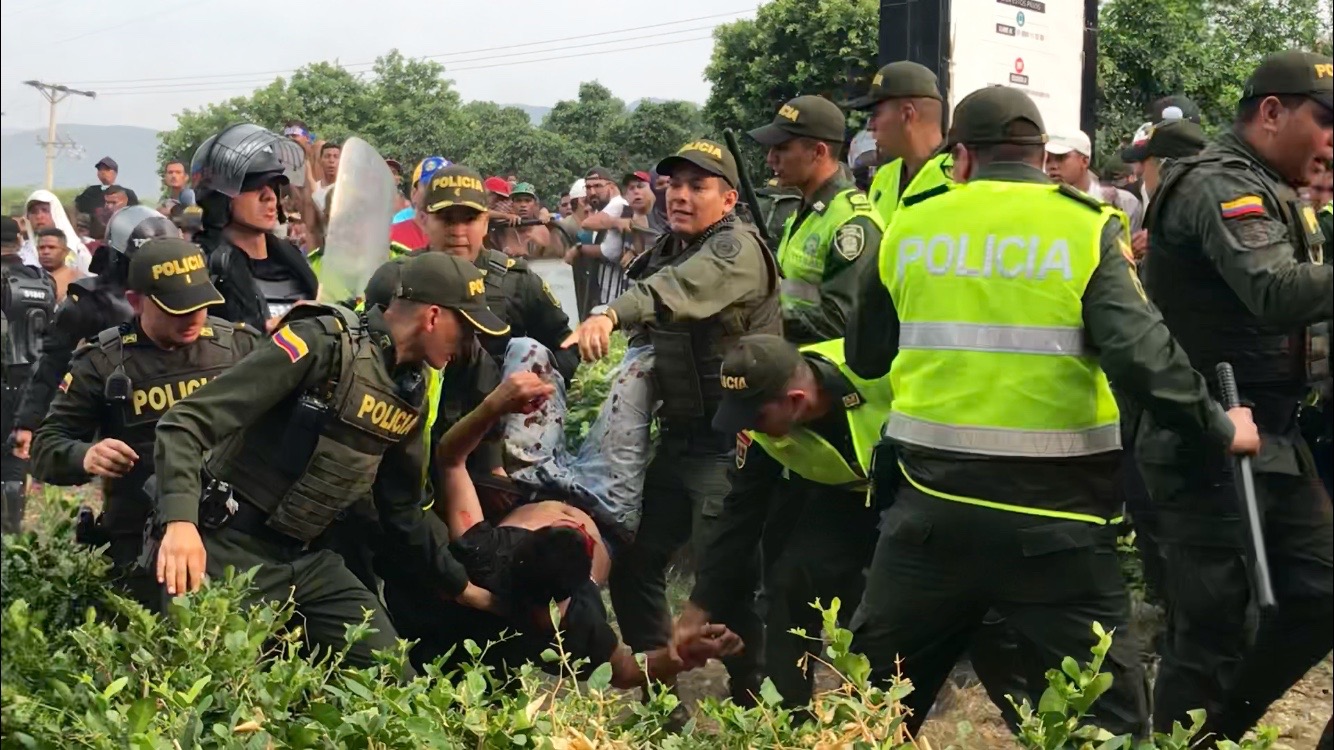
Sara (26), Dentist
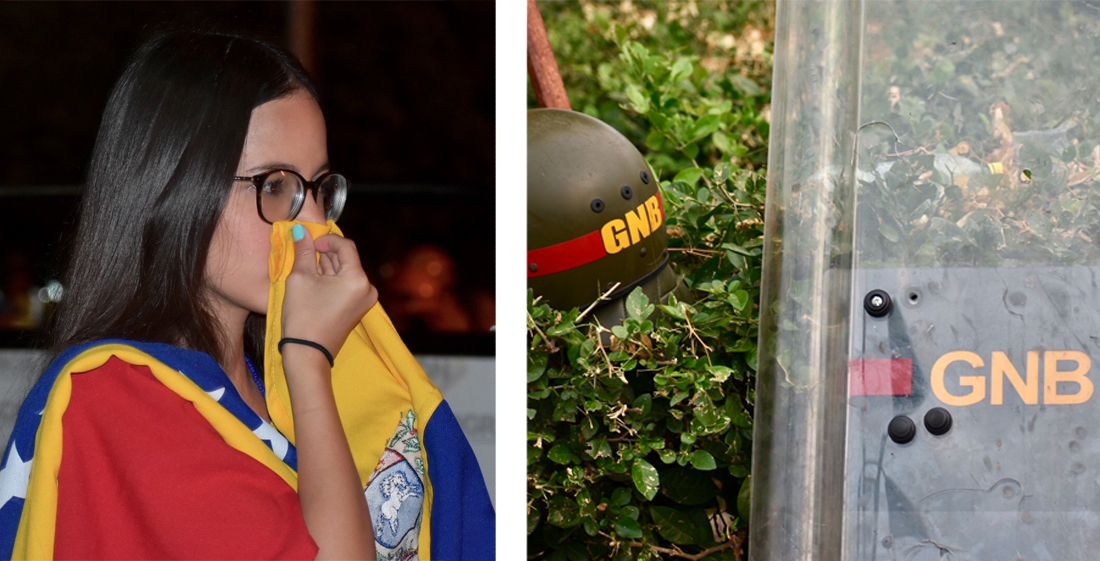
Sara sits facing the entrance to the Simón Bolívar Bridge, where heavy clashes took place between volunteers trying to move the aid and the Venezuelan National Guard throughout the day. As the last shots of the day ring out in the background, Sara covers her mouth with the Venezuelan flag. Tear gas still hangs in the air.
VICE: What happened today on the bridge?
Sara: We couldn't get the aid across. A lot of people were injured from tear gas and rubber pellets. Everyone here fought as hard as they could so that we could all be free.
Do you think all of this is worth it?
Like my mom said, if I don't fight, who will fight for me? Who will fight for my future? Tomorrow we'll come back again. We need to keep fighting.
Sign up for our newsletter to get the best of VICE delivered to your inbox daily.
Follow Alex Domash on Twitter.
from VICE https://ift.tt/2IEVQxj
via cheap web hosting
No comments:
Post a Comment